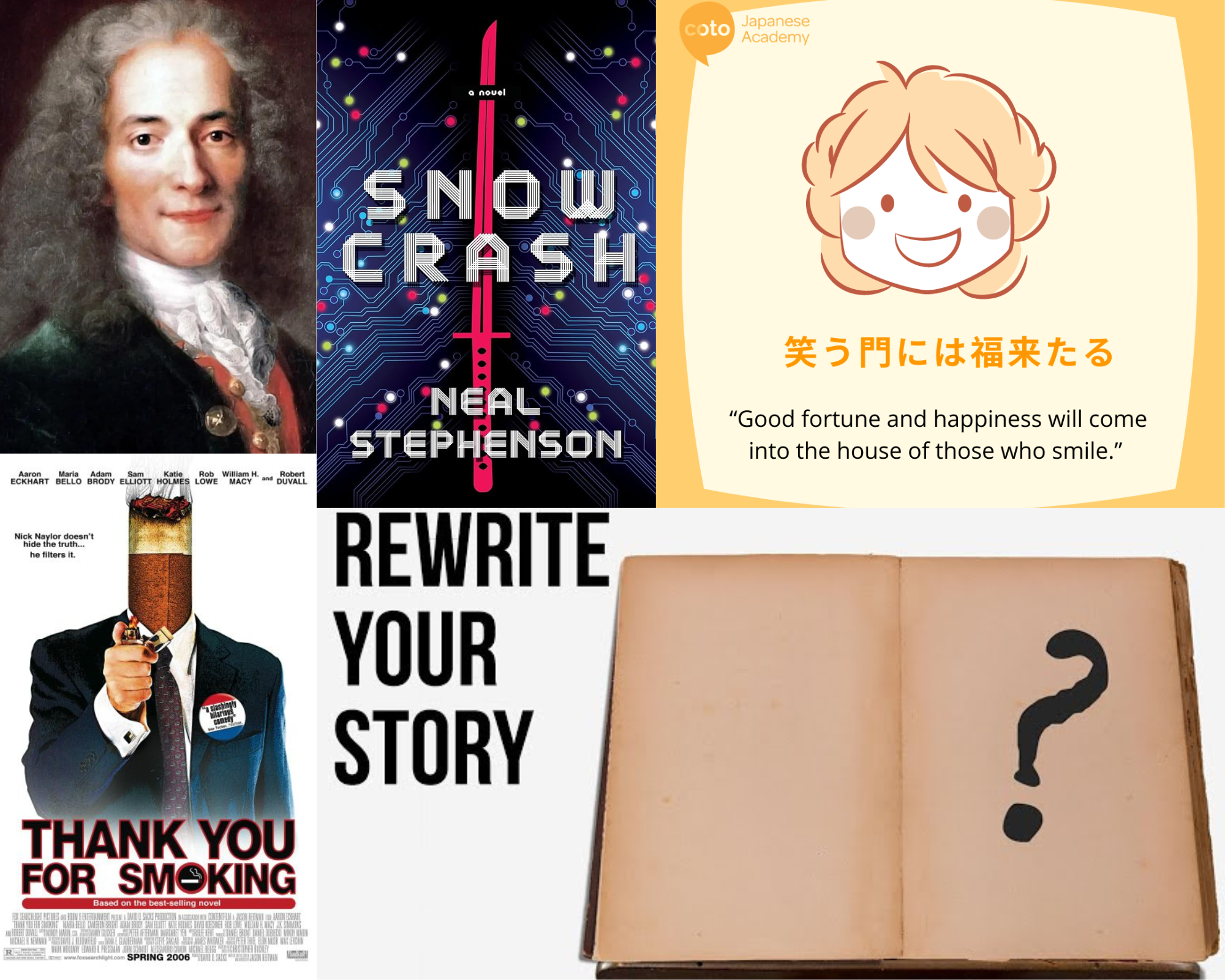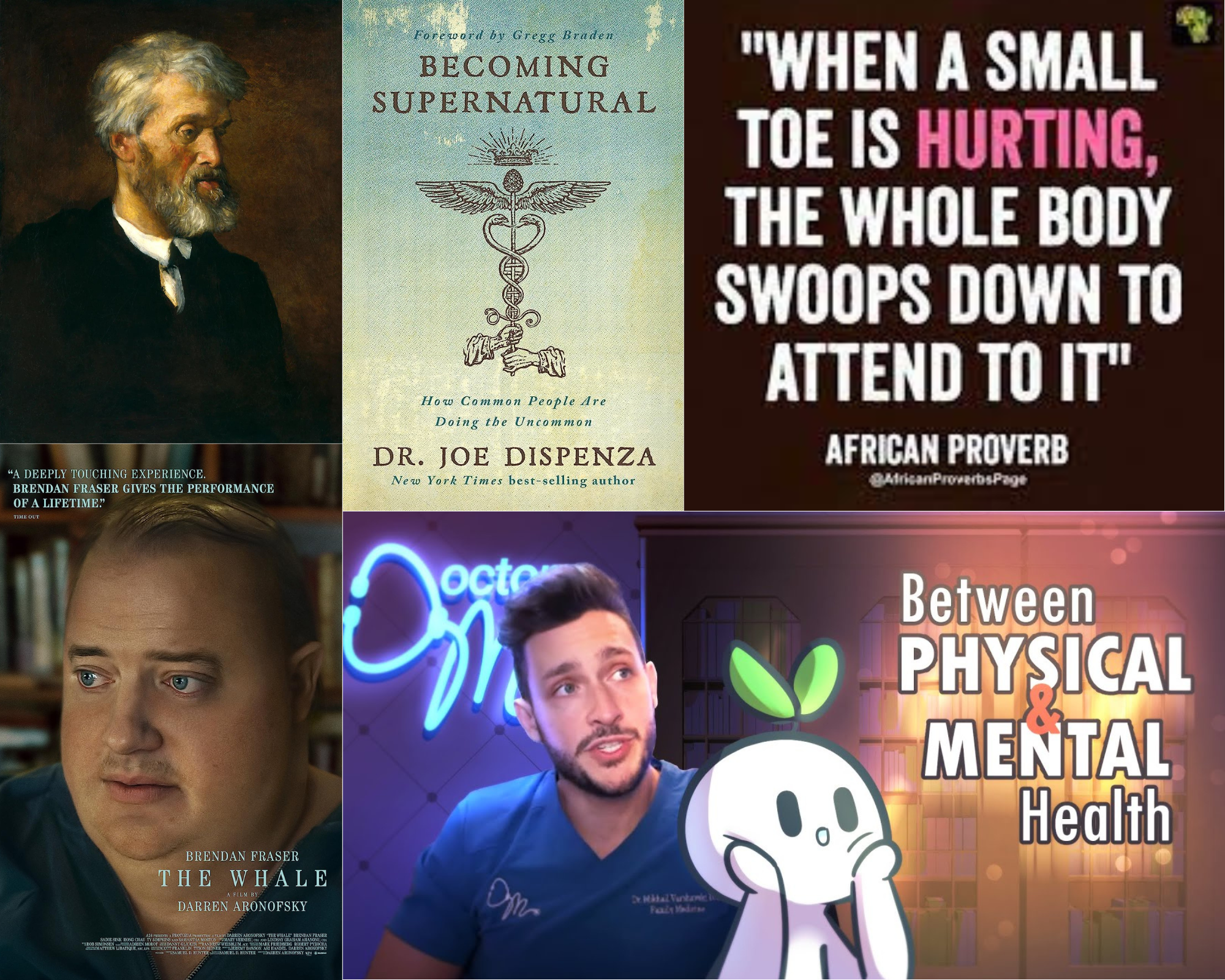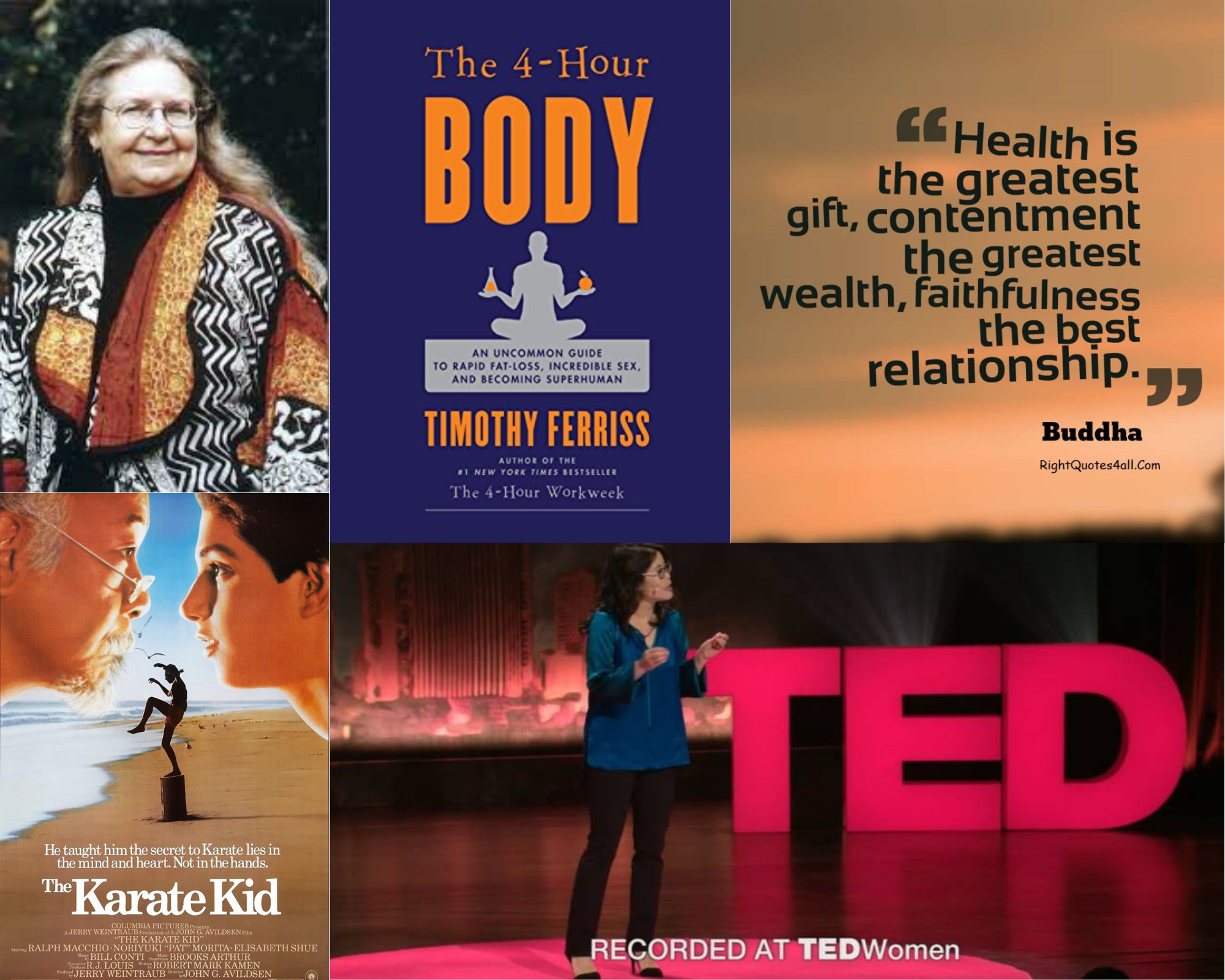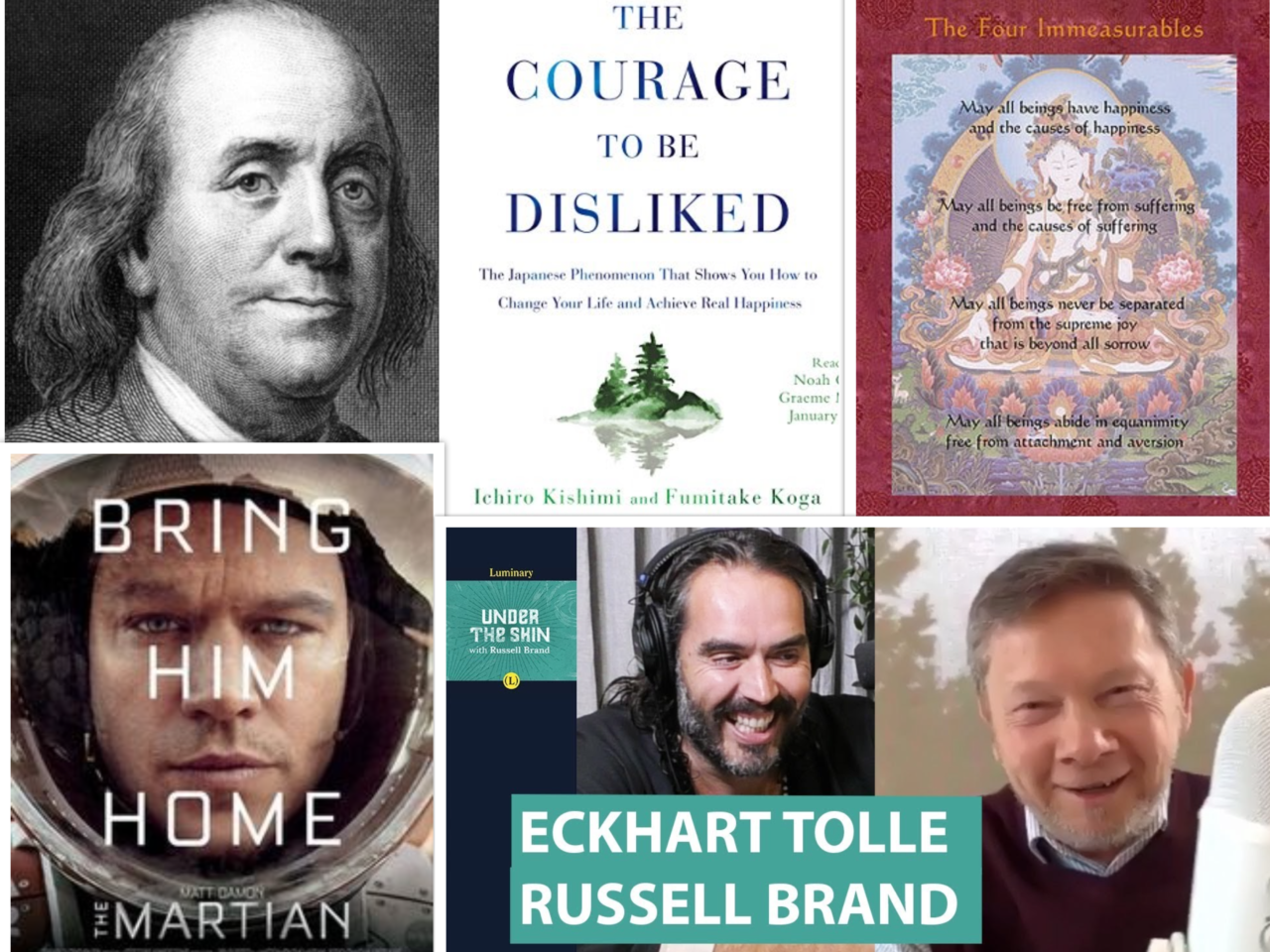Sunday Supplement #145 (February 18th, 2024)
Below is another Sunday Supplement with a quote worth sharing, a book worth reading, a movie worth watching, brainfood worth consuming, and a spiritual passage worth pondering.
Please take something away from these recommendations that enriches your week ahead!
Quote of the Week:
“I have chosen to be happy because it is good for my health.”
– Voltaire
Book of the Week:
Snow Crash – Neal Stephenson
Neal Stephenson is a Hugo, Locus, and Clarke-award-winning author whose works have been classified as Science Fiction and Cyberpunk.
My Uncle recommended Snow Crash to me, and I’m so glad he did. Stephenson’s novels tend to feature themes around history, linguistics, religion, computer science, and philosophy.
Snow Crash is set in the 21st century, several years after the worldwide economic collapse. Los Angeles is no longer part of the U.S. since the government ceded most of its control to entrepreneurs and private organizations.
Hiro Protagonist is the main character, and he is a freelance hacker and pizza delivery driver for the Mafia. He receives a data file in the online Metaverse that turns out to give a virus to the user that carries over to the real world.
Protagonist’s adventure is wild and one I highly recommend. It was nominated for the British Science Fiction Award and the Arthur C. Clarke Award.
Movie of the Week:
The 2005 satirical comedy Thank You For Smoking passed under the radar for the most part. I didn’t remember hearing anything about it when I watched it, probably five years later.
The film follows Nick Naylor, Big Tobacco’s chief spokesman, who lobbies on behalf of cigarettes while trying to be a role model for his 12-year-old son.
Aaron Eckhart steals the show as Nick Naylor, but there are brilliant performances from the ensemble cast of Maria Bello, Cameron Bright, William H. Macy, J.K. Simmons, Robert Duvall, Adam Brody, Sam Elliott, Katie Holmes, and Rob Lowe.
The film is written and directed by Jason Reitman (Juno, Up in the Air) and is based on the 1994 novel by Christopher Buckley.
Thank You For Smoking is a highly entertaining watch with a surprisingly moral lesson about choice as its central theme.
Brainfood of the Week:
How To Recognize Your Patterns – And Escape Them | The School of Life
The School of Life makes content from psychologists, philosophers, and writers devoted to helping people lead calmer and more resilient lives. I have featured their videos in several previous Sunday Supplements.
In this video, The School of Life discusses how we can lock ourselves in repeated behaviors and narratives that aren’t always pleasant.
The video goes on to discuss a variation of childhood trauma, where we are reenacting old scripts from our childhood that we are trying to process.
I believe another influence on our narratives can be what we are tuned into in our lives: people, environment, media consumption, and things.
The School of Life finishes the video by saying we must find and heal the original traumas. I recommend looking into therapy if that’s an available option.
Closing Spiritual Passage:
“Good fortune and happiness will come into the house of those who smile.” (笑う門には福来たる)
– Japanese Proverb
I think this Japanese proverb is one you make a default setting for yourself. I try to notice more when I’m unhappy so I can see if there’s something I can do about it.
There will be many situations and times when you are in a difficult place, which is more than okay. But I believe you should make sure your natural disposition is a positive one.
I take the meaning of the Japanese proverb as both literal and metaphorical. For both, smiling is a way to welcome positive things into your experience.
This proverb is a good reminder for me to keep an eye out for whether or not I’m going through my days with a smile.
Choose to smile as often as possible and appropriate, and have a blessed week ahead!




